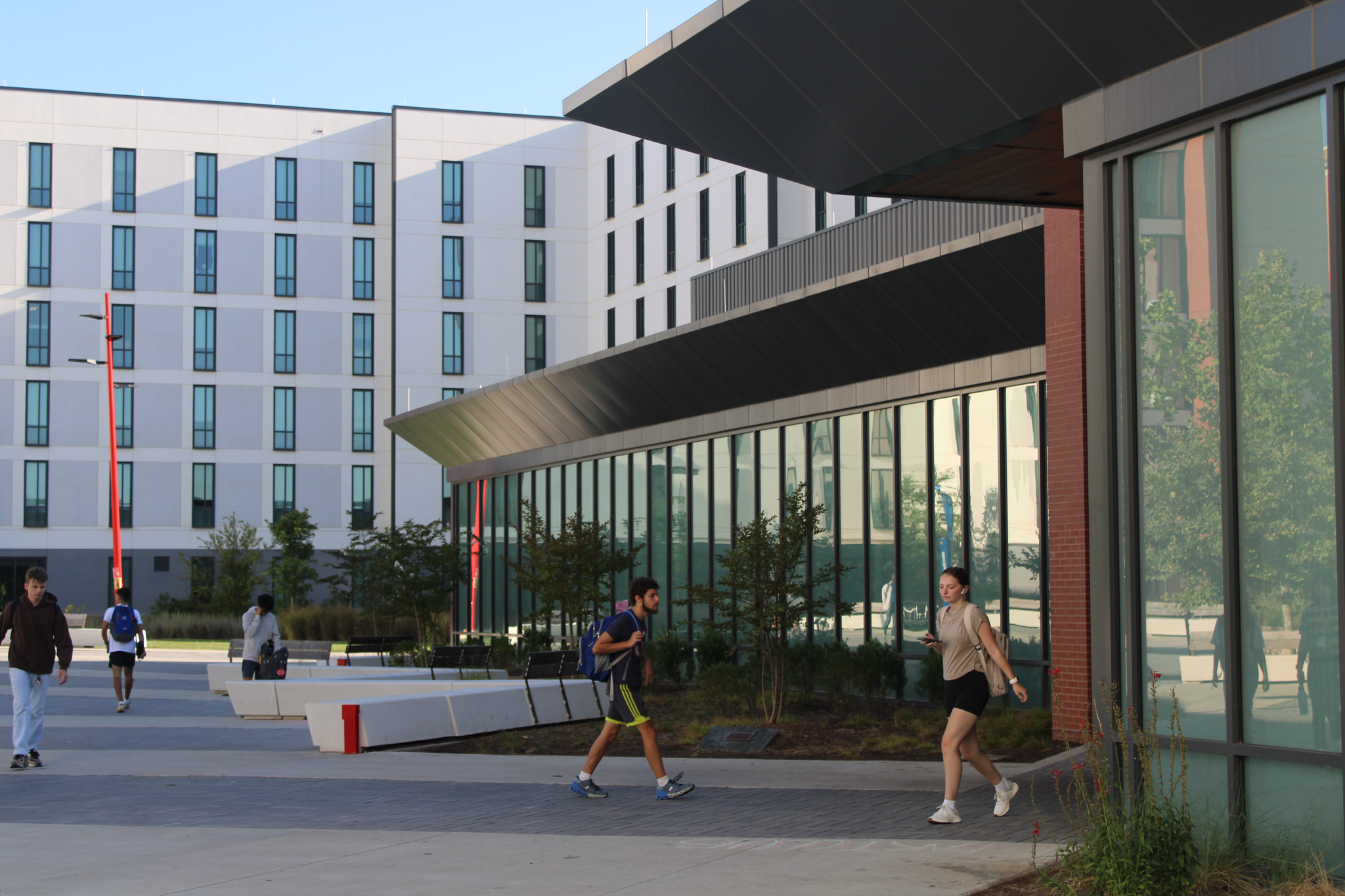As Ramadan commenced on Sunday, several Muslim students at the University of Maryland expressed mixed feelings over the university’s accommodations for students celebrating the holy month on campus.
During Ramadan, Muslims fast from dawn to sunset to celebrate the revelation of the Quran and draw closer to God, according to the Islamic Networks Group. Since Ramadan began to coincide with the academic year in 2018, this university has offered accommodations to support on-campus students in commemorating the holiday, according to Dining Services spokesperson Bart Hipple.
Traditionally, two meals are served each day during the month of Ramadan — suhoor and iftar. Before dawn, Muslims begin with their morning meal, suhoor, and break their fast after sunset with iftar.
For suhoor, this university offers students a meal pickup service option since all three university dining halls open after sunrise.
Students can fill out a form on the Dining Services website by Thursday at 9 p.m. to reserve their suhoor meals for the following week, according to the Dining Services website. The website said that students can pick up the meals from 5 to 9 p.m. in Yahentamitsi Dining Hall or South Campus Dining Hall.
Several students at this university, including sophomore biochemistry and government and politics major Ziyan Ahmed, said they were grateful for the suhoor meals this university provides.
“I appreciate UMD’s efforts for providing suhoor meals,” Ahmed said. “They did give a good amount as well.”
[A UMD student’s guide to observing Ramadan on campus]
Students without dining plans, can purchase each suhoor meal for $10, according to the Dining Services website.
Hipple said Dining Services has made changes to this year’s suhoor menu based on student feedback and discussions with this university’s Muslim Student Association and Muslim students with dining plans. The meals now include more higher-protein items, Hipple noted, and each item can be consumed hot or cold to better accommodate students without access to microwaves.
“We want to make sure that people can get through the whole day comfortably,” Hipple said. “We want all students to feel confident and comfortable that they can eat the way they want or need.”
Like Ahmed, Ayra Hussain, a sophomore environmental science and technology major, said she found the suhoor program helpful. While she said it was difficult to find space to fit the meals in her dorm room’s mini-fridge, Hussain emphasized that this university provided enough food for the day.
But Ahmed and Hussain expressed concerns over the university’s program for iftar meals.
This university’s dining halls do not offer accommodations for iftar, according to the Dining Services website. The website encourages students to eat at Yahentamitsi or South Campus Dining Halls, which are open until 9 p.m.
[Native American community members showcase cultures, traditions at annual UMD powwow]
Hussain said that last year, there were many times when she was unable to enter a dining hall before it closed. As a result, Hussain often ate foods that weren’t filling or nutritious, she said.
“I would go to the little convenience store and I would get like ramen or something,” Hussain said. “It wasn’t very fancy or very nutritious. I would just get anything at that point because [the dining halls] would just be closed so early.”
Ahmed said he had late labs, which led him to miss the window for iftar several times last year. He encouraged this university to provide a carryout iftar meal service similar to suhoor meals to better accommodate students’ schedules.
Because Ramadan began on March 22 last year, the sunset was later in the day, which made it more difficult for students to enter the dining halls for iftar before they closed, Hussain noted.
Dining Services has previously offered takeout iftar meals in addition to morning meals when Ramadan fell later in the spring, Hipple said. This year, Hipple is confident students should have time to eat iftar in the dining halls, he added.
Like Hipple, Hussain said she is optimistic that students will have more time to eat iftar at dining halls this year because Ramadan falls earlier in the year and the sun sets earlier in the day.
Despite the challenges of observing Ramadan on campus amid the pressures of college life and being away from home, Ahmed expressed his excitement for the holiday and viewed it as a period of introspection.
“It provides me a time where I have no excuse but to really look into my religion and reflect on myself,” Ahmed said.



